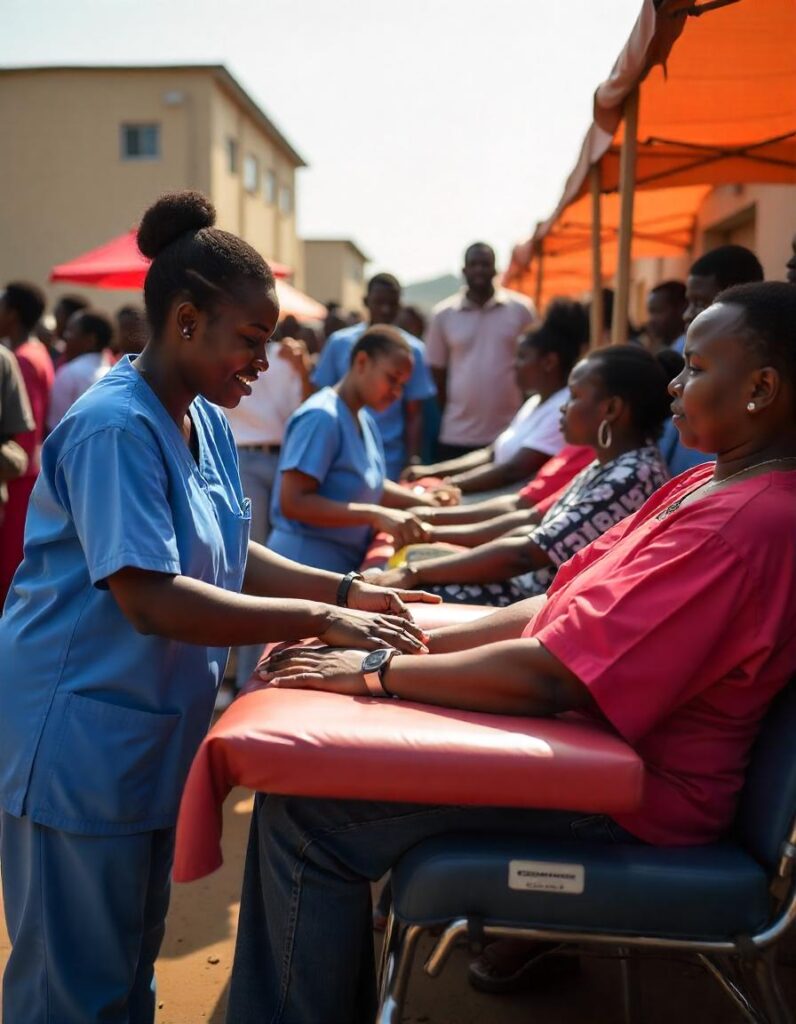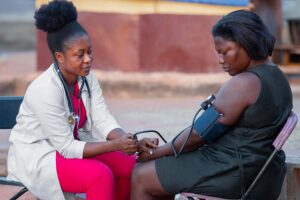Every day in Nigeria, thousands of lives are at risk due to severe blood shortages. Blood drives have never been more urgent, and a single act of generosity can make a world of difference. Donating blood is not just about giving a part of yourself—it’s about offering hope, strength, and life to those who need it most.
This article explores the impact of blood donation, how it helps save lives, and why Oneus in Nigeria is at the forefront of this vital cause. Learn how easy and safe it is to donate blood, and discover the long-lasting benefits you can offer through blood donation. Read on for practical advice, the donation process, and how you can get involved today.
Why Blood Donation Matters
Blood is essential for various medical treatments and procedures. It’s used in surgeries, emergency care, cancer treatments, trauma recovery, and even for premature babies in need of specialized care. However, the global blood supply faces frequent shortages, and Nigeria is no exception. In fact, the World Health Organization (WHO) reports that the need for blood is on the rise, with demand outpacing supply in many regions.
With only a small percentage of eligible individuals donating blood regularly, the gaps in the supply chain are clear. Every donation helps bridge this gap, saving lives when every second counts. In Nigeria, Oneus blood drives are playing a key role in ensuring that blood is available when it’s needed most.
The Life-Changing Process of Blood Donation
Many people shy away from donating blood because they are unsure about the process or its safety. But the truth is, the blood donation process is safe, quick, and simple. Blood centers like Oneus make it easy for people to donate by organizing regular blood drives and ensuring a smooth and hygienic donation process.
-
Registration: Upon arrival, you’ll be asked to fill out a health questionnaire to ensure that you’re eligible to donate.
-
Pre-Donation Screening: A nurse will take a small sample of your blood to check for iron levels and other health factors.
-
Donation: The actual blood donation takes just about 10-15 minutes. A typical donation involves approximately 450 milliliters of blood, which can save up to three lives!
-
Post-Donation Recovery: After donating, you’ll rest for a few minutes and receive a snack to replenish your energy levels.
How Blood Drives Saves Lives
The impact of your donation goes beyond just providing life-saving blood. Each donation can be separated into different components, such as red blood cells, plasma, platelets, and white blood cells. These components are used to treat various conditions, from anemia and cancer to severe burns and bleeding disorders. Here’s how different types of blood donations help:
-
Red Blood Cells: These are essential for treating patients with anemia or those recovering from surgeries.
-
Plasma Donation: Plasma helps in treating burn victims, shock patients, and those with liver diseases.
-
Platelet Donation: Platelets are crucial for patients with cancer or those undergoing chemotherapy.
-
Bone Marrow and Stem Cell Donation: These are vital for patients with leukemia or other blood cancers.
For those interested in donating plasma, Oneus also operates plasma donation centers, providing a place where you can contribute this valuable resource. Plasma is the liquid part of blood, and it plays an important role in treating burns, shock, and clotting disorders.
Understanding the Rhesus Factor and Blood Group Compatibility
When donating blood, one important factor to consider is your blood group and rhesus factor (Rh). Different people have different blood types, such as O positive, A negative, or AB positive, and compatibility is crucial when blood is transfused.
In emergencies, having the right type of blood on hand can be the difference between life and death. That’s why blood banks and donation websites emphasize the importance of knowing your blood group and genotype. Oneus offers a helpful service where donors can check their compatibility to ensure the most effective use of their donation.
The Benefits of Donating Blood
Not only does blood donation save lives, but it also offers benefits to the donor. Regular blood donation can improve cardiovascular health, reduce iron overload in the body, and stimulate the production of new blood cells. Plus, studies have shown that giving blood can help keep your skin looking healthier and more vibrant, as it improves circulation.
The Risks of Not Donating Blood
The risks associated with not donating blood are not just about missing an opportunity to help others. Without a steady supply of blood, patients undergoing surgeries, treating trauma, or managing chronic conditions could face severe complications. Oneus strives to make blood donation accessible to everyone, and not participating in this vital effort can put many lives at risk.
Get Involved: Donate Blood, Save a Life
It’s clear that blood donation is a powerful act that has the potential to change lives. You can make a huge impact by donating today, whether it’s donating whole blood, plasma, or platelets. Oneus in Nigeria is dedicated to making the process easy, safe, and accessible. Every donation counts, and each drop of blood has the potential to save a life.
Take action now:
-
Give Blood, Save a Life – Book Your Donation Now!
-
Contact us at info@oneusng.com or +234 902 168 2822
-
Visit Oneus to find out more about blood donation, blood drives, and plasma donation centers near you.
Let’s work together to ensure that no one has to wait for the life-saving blood they desperately need. Your donation could be the reason someone gets another chance at life.




